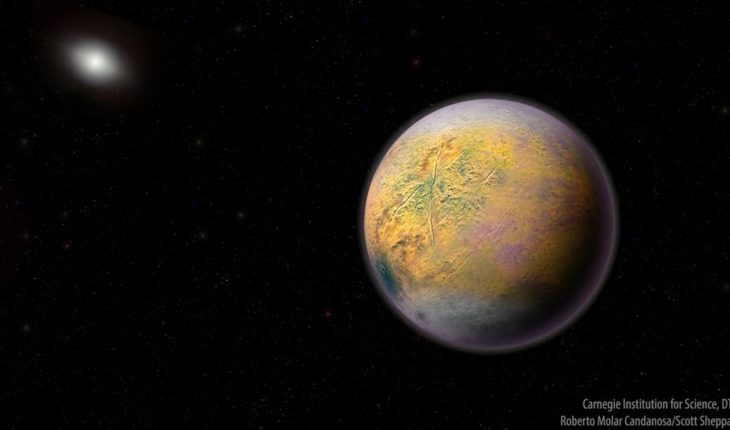may still be at least one large planet identified: “Planet nine”.
That suggests the orbit of the dwarf planet “2015 TG387” or “El Duende”, newly discovered by the center of minor planets of the Union astronomical International (CPMUAI).
The CPMUAI announced on Tuesday the discovery of the “2015 TG387” after three years of research with the help of telescope Subaru in Hawaii, United States.
The Elf is like a small indicator of the presence of the hypothetical “Planet X”, a giant that scientists believe that exists at the edge of the Solar system and that it would be the ninth member of our neighborhood.
What is a dwarf object to function as another huge track?
Orbit very long study that found the small planet from approximately 300 kilometers in diameter was in charge of the Carnegie Institute for science, the University of Northern Arizona and the University of Hawaii.
The Goblin is 2,300 times farther from the Sun than the Earth.
Its nearest to the star point doubles the distance from Pluto to the same, details the New Scientist magazine.
As a result, this dwarf planet takes over 40,000 years to turn our astro.
But the slowness of the Elf could be due to the “vicinity” of another much larger than the body.
Influence the long orbit of the Elf, as the other two similar objects discovered in 2014, seems influenced by the gravity of an object that could be 10 times larger than the Earth.
ReutersEl planet nine is described as a “super-Tierra” ice that is supermassive object beyond the orbit of Pluton.este would be called “Planet X”, a giant planet and yet to discover.
In fact, scientists discovered the Goblin while they were in search of “X”.
The Carnegie Institute ensures that this research is “the largest and most profound ever made about distant Solar system objects”.
“These distant objects (such as El Duende) are like the bread crumbs that lead us to Planet X”, said the leader of the study Scott Sheppard, of Carnegie, in a statement.
“How many more we can find, we can better understand the outer Solar system and the possible planet, we believe that you are configuring their orbits,” he added.
Sheppard said that “these discoveries redefinirían our knowledge of the evolution of the Solar System”.
translated from Spanish: Duende: the new planet discovered in the Solar system beyond Pluto but within the Solar system,
October 2, 2018 |





